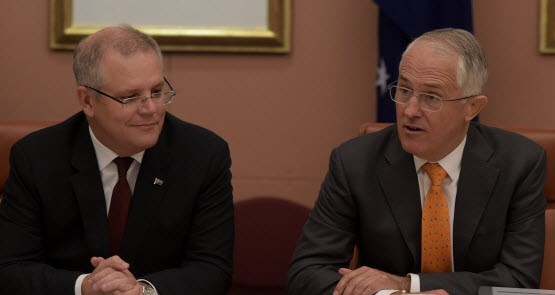
States raising income taxes? This is a very interesting idea to drop into the debate because there is not a clear partisan model for how to think.
It’s not immediately obvious that this is leftist, and it’s not necessarily conservative either to put taxation powers in the hands of a traditionally more left-wing level of government.
So the issue has no clear model telling people where they stand on it, and that has led to a certain amount of silence as people actually try to figure it out themselves. How very welcome.
If you think about it as an approach that could lead to a higher level of taxing and spending, it could be quite progressive. If you think about it as creating inequalities between states, it’s likely to seem regressive.
One major risk is a race to the bottom, where states aim to have the lowest income taxes. Taxes are hard to raise, easy to cut. But that’s not the only possible scenario. I’d actually be quite surprised if that happened, because states want to attract firms, not people. They’re more likely to cut things like payroll tax than income tax.
An alternative unintended consequences of splitting responsibility for taxes could be that they are not cut.
Often, when no single person has responsibility for something, no action is taken. The diffusion of responsibility for income taxes between the feds and states could lead to a lock-in of our current tax rates.
An impasse where the states threaten to raise taxes if the feds cut them is also conceivable.
Trying to figure out the effect of what is basically a tax administration change will always be tricky. It depends on how the change affects incentives inside the federal government and state government. What that means is that this change is far from conservative. It’s a risky ploy that could easily backfire on Malcolm Turnbull — if the states accept it.
It could turn Australia back into a more socialist place. The feds tend to be right-wing (defence, migration) while states are a bit kinder and gentler (schools, hospitals). History shows states are far more often red than blue.
One prominent argument against the change is that opportunity should be available to people no matter what state they are born in. Smaller states would need higher taxes to pay for equal services, and would therefore be disadvantaged by this change. This is an effective point that may win the day.
But equality between states is not the only issue. What if equality within states matters more? The disadvantaged population of Victoria alone is greater than the whole population of Tasmania.
If giving the state further income tax powers would help it raise taxes and provide services in a way that helped that population, state-level income taxes could be considered progressive. Whether this is likely is difficult to tell from here.
Ultimately, like a rise in GST, this idea will be discarded. It’s too easy to run a scare campaign on and too hard to explain the point of it. And then, if Turnbull loses, this idea will gain in meaning and menace and be remembered as a government-killer.
Which is a shame, as it is not necessarily a bad idea. Introduced at the right point in the political cycle, it could really be thrashed out and potentially useful. But at this point there is no point talking about it except in a cynical way, and fear will be far easier to create than comprehension.








Not another great big tax? Surely the Libs have heard about those. Tony can tell them.
The only thing that resonates from this idea is that private schools will be funded and state schools can make their own arrangements..
Jaybuoy, the Conservatives are unlikely to ever match the role of the ‘progressives’ in helping to destroy the excellent State School systems once available to all in Australia.
ah those Left Wing colonial states. Excellent April Fool’s joke, fellas.
Jason, did you do any research for this? Your piece seems entirely speculative. Is there any understanding of the reasons the current system is as it is? Any historical context?
It bothers me that no-one seems to understand the difference between s96 grants and general purpose Financial Assistance Grants to the states. There appears to be no appreciation or analysis of the impact of Turnbull’s “brain explosion” (to use a rugby league expression) on horizontal fiscal imbalance or, in fact, on vertical fiscal imbalance. Those reporting also appear to have no idea of the scale of the funding at stake but simply talk of the Commonwealth’s contribution as if it was the primary contributor to service delivery. It’s not. I apologise for being so kranky about this but it is utter nonsense.